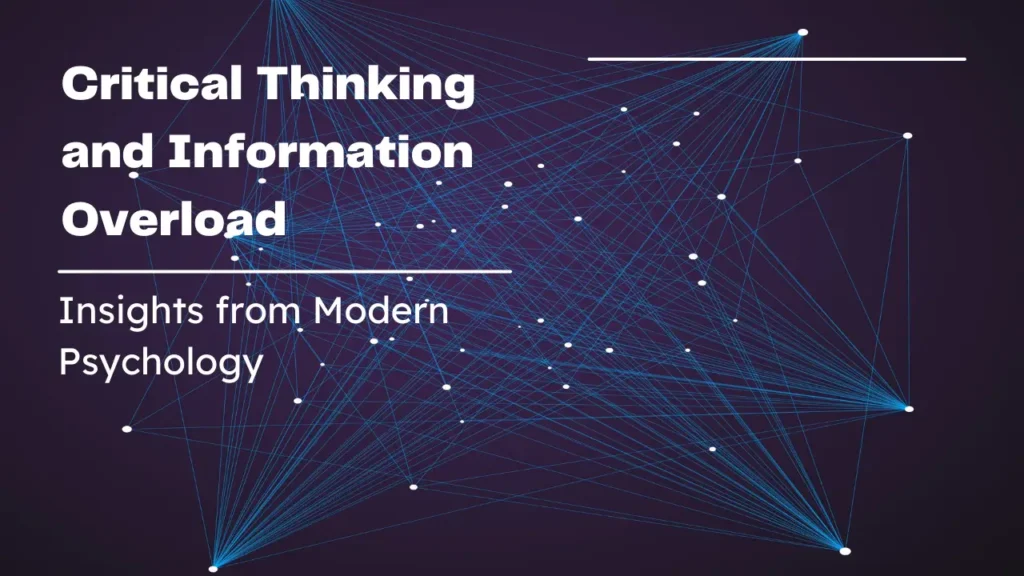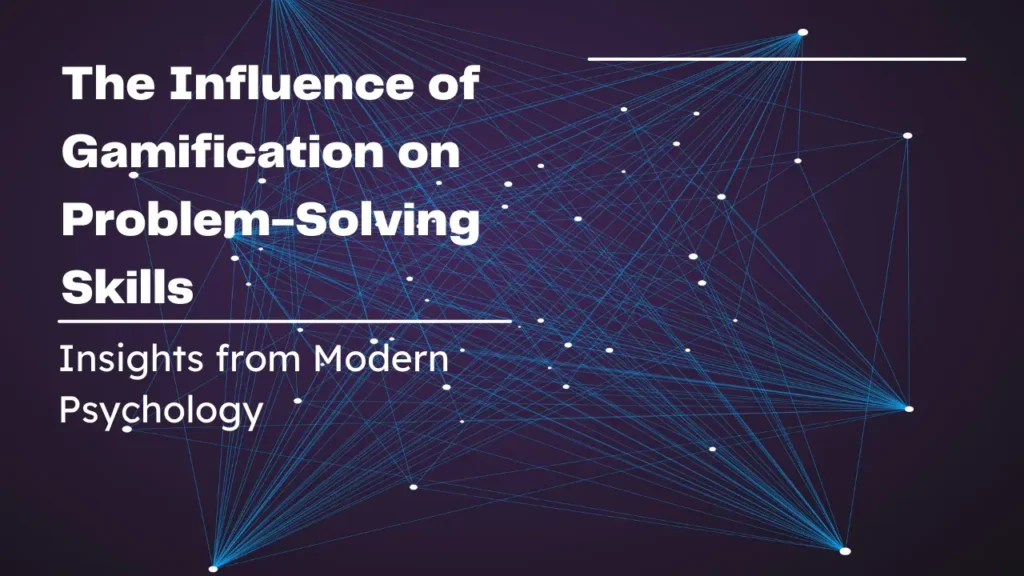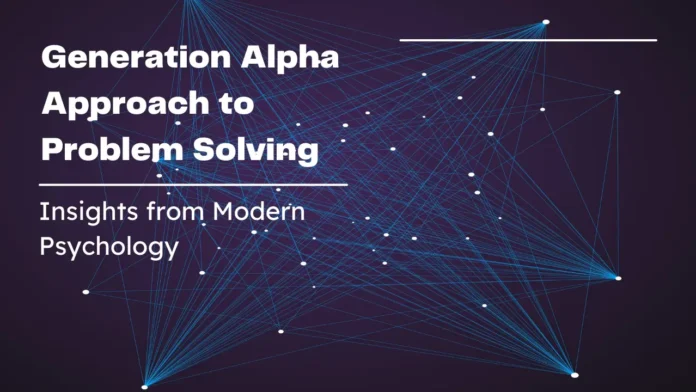Generation Alpha Approach to Problem Solving: Insights from Modern Psychology: Generation Alpha, the demographic cohort born between 2010 and 2025, is growing up in a world defined by rapid technological advancements and an ever-expanding digital landscape. Unlike their predecessors, Generation Alpha is being raised with a high level of interactivity with AI, advanced digital platforms, and global connectivity. This exposure from a young age shapes their approach to problem-solving in ways that diverge significantly from previous generations.
Psychological research is now shedding light on the unique ways this generation processes information, overcomes challenges, and navigates complex problems. Understanding Generation Alpha’s approach is not only crucial for parents and educators but also for future employers and policymakers.
The Role of Technology in Generation Alpha’s Problem-Solving Skills
Generation Alpha is often referred to as the “tech-native generation.” From tablets to AI-driven learning tools, they are immersed in technology from birth. This technological immersion gives them the ability to solve problems in ways that are faster, more creative, and more adaptive.
Modern psychology suggests that their constant interaction with technology enhances their ability to think laterally. Lateral thinking, or the ability to solve problems through indirect and creative approaches, is being nurtured by their exposure to interactive apps, video games, and social media platforms. Problem-solving for Generation Alpha often involves testing, exploring, and optimizing solutions through trial and error in digital environments.
Furthermore, their ability to multitask and quickly absorb information across multiple channels has been linked to enhanced cognitive flexibility—the capacity to switch between tasks and adapt to new information or problems.
Collaborative Problem Solving: A Key Trait of Generation Alpha
While individualism dominated much of the previous generations’ learning processes, Generation Alpha is displaying a heightened tendency towards collaborative problem-solving. From online multiplayer games to group chats and virtual study sessions, this generation is growing up in a collaborative digital ecosystem.
Psychologists have found that group-based learning environments, supported by online tools, encourage peer collaboration, making problem-solving a communal activity. This social approach not only builds their interpersonal skills but also enhances their emotional intelligence and team dynamics, qualities that are increasingly critical in the workplace. As a result, Generation Alpha is expected to be a generation that excels in collaborative work environments and complex team-based projects.

Critical Thinking and Information Overload
Despite their technological prowess, Generation Alpha faces one of the most significant challenges of the modern age: information overload. With vast amounts of data available at their fingertips, they must develop critical thinking skills to navigate the noise.
Modern psychology emphasizes the importance of cognitive filtering, where individuals must discern valuable information from irrelevant content. For Generation Alpha, learning to filter and analyze information is vital in their problem-solving process. This generation is learning to ask the right questions, identify credible sources, and synthesize information in a world overflowing with content.
Interestingly, research suggests that Generation Alpha has a more inquisitive approach to problem-solving, often asking “why” and “how” before diving into solutions. This critical engagement with information is shaping them into effective problem solvers who do not take information at face value but seek to understand its deeper implications.
Emotional Resilience and Problem-Solving
Another distinctive trait that stands out in Generation Alpha’s problem-solving capabilities is their emotional resilience. Growing up in a world where challenges such as climate change, economic instability, and political unrest are prevalent, Generation Alpha is developing a resilient mindset.
Psychologists have noted that resilience— the ability to bounce back from setbacks— is a critical component of effective problem-solving. Generation Alpha, more than previous generations, is being educated about mental health from an early age, equipping them with tools to manage stress, anxiety, and emotional challenges. This emotional intelligence helps them navigate difficult situations and find solutions that are both pragmatic and emotionally sustainable.
Additionally, this generation is showing a marked ability to cope with failure. Due to the nature of interactive digital platforms, where failures are part of the learning curve (think video games or coding), Generation Alpha is less discouraged by setbacks. Instead, they use these experiences as learning opportunities, a trait that is highly beneficial for long-term problem-solving.

The Influence of Gamification on Problem-Solving Skills
One of the most defining aspects of Generation Alpha’s development is the influence of gamification on their problem-solving skills. Digital games and gamified learning environments provide instant feedback, rewards, and challenges that foster a growth mindset. This concept, popularized by psychologist Carol Dweck, is the belief that abilities can be developed through dedication and hard work.
Generation Alpha is growing up in an environment where games are not just a form of entertainment but also an educational tool. Through gaming, they develop persistence, strategy, and systematic thinking—key components of problem-solving. The ability to break down complex problems into smaller, manageable tasks, and work towards a solution, is a skill that is directly nurtured through gamified learning.
Moreover, the competitive yet cooperative nature of many multiplayer games encourages Generation Alpha to work both individually and as part of a team. This hybrid approach to problem-solving, combining individual creativity with team collaboration, is proving to be a powerful asset in their cognitive development.
Adaptability in a Rapidly Changing World
Adaptability is perhaps one of the most critical traits that Generation Alpha is developing, and it plays a significant role in their approach to problem-solving. The world they are growing up in is marked by continuous change—new technologies, evolving job markets, and shifting global dynamics.
Psychologically, this generation is developing an open-mindedness that allows them to adjust their problem-solving approaches as situations evolve. Adaptability, as noted in psychological studies, is closely tied to cognitive flexibility and growth mindset, both of which are being nurtured through the dynamic environments in which Generation Alpha is learning.
Their ability to embrace uncertainty and adjust strategies in real time is likely to make them excellent problem solvers in future careers, especially in fields that require innovation and creativity.
Conclusion: A Future of Innovative Problem Solvers
Generation Alpha’s approach to problem-solving is being shaped by their unique environment—one defined by technology, collaboration, emotional resilience, and adaptability. Modern psychology confirms that these traits are not only advantageous in overcoming current challenges but also in preparing them for a rapidly evolving future.
The combination of critical thinking, lateral thinking, and collaborative problem-solving sets them apart from previous generations. As they continue to grow, their problem-solving capabilities will undoubtedly redefine workplaces, educational environments, and societal structures.




